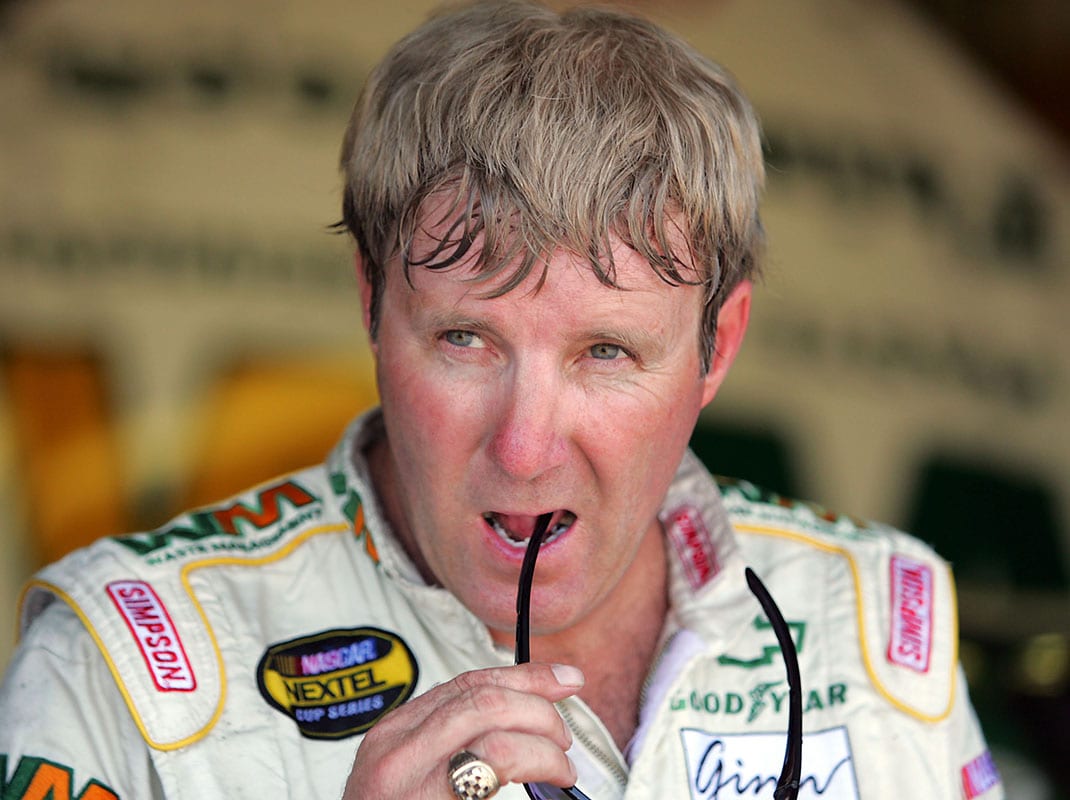While Clifton “Coo Coo” Marlin was known as one of the most successful independent drivers during his 14-year NASCAR career, his son Sterling’s claim to fame included a long and rewarding driving career highlighted by Daytona 500 victories in 1994 and ’95.
Their stories are about hard work, dedication and a passion for racing.
While toiling as a 17-year-old crew chief for his brother, Jack, Coo Coo Marlin, who earned his nickname because he couldn’t say Clifton as a child, practiced their car several times. Then, when Jack failed to show up for a race at the dirt track in Hohenwald, Tenn., Coo Coo Marlin raced to a third-place finish and his driving career began.
He proved he could master the short tracks in Tennessee and Alabama, running against drivers such as Red Farmer, Bobby Allison and Donnie Allison. He was a four-time track champion at Nashville’s Fairgrounds Speedway, driving a 1964 Chevrolet Impala. The elder Marlin had a huge fan following everywhere he went, often putting his fire-engine-red machine in victory lane.
With so much success on the Tennessee short tracks, Marlin’s wife, Eula Faye Marlin, urged him to compete at NASCAR’s highest level. In 1966, Coo Coo Marlin decided to try his hand at NASCAR’s premier series at his home track in Nashville. He started eighth and finished eighth against NASCAR’s elite drivers. Three starts followed in 1967, two at Daytona Int’l Speedway and one at Nashville, producing mediocre results. Seven more races followed in 1969 with a best finish of sixth at Talladega (Ala.) Superspeedway.
Throughout his NASCAR Cup Series career, Coo Coo Marlin never ran a full schedule but logged nine top-five finishes and 51 top-10 efforts in 165 starts.
The most races he ran in a single year was 23 in the 1974 and ’75 seasons with his best points-paying finishes being a trio of third-place efforts. The elder Marlin did win a 125-mile qualifying race at Daytona prior to the 1973 Daytona 500.
Farming was still a necessity while racing on NASCAR’s high-banked tracks around the country and Marlin chose to end his career after only three starts in 1980.
“I don’t think I could have made it to all the races and farmed, too,” he said in the April 1992 issue of American Racing Classics. “If I had driven for someone else, I probably would have been able to drive two or three more years but I wanted to be my own boss.
“I didn’t have the big sponsors I needed. In the early 1970s, I got to the point where I felt I could just about beat the top dogs. That’s when Junior Johnson told me, ‘You might out-qualify us and you might outrun us for a while, but when the race is over, money will beat you.’ He was right.”
Coo Coo Marlin died on Aug. 14, 2005, after battling lung cancer.
Continue reading on the next page.
